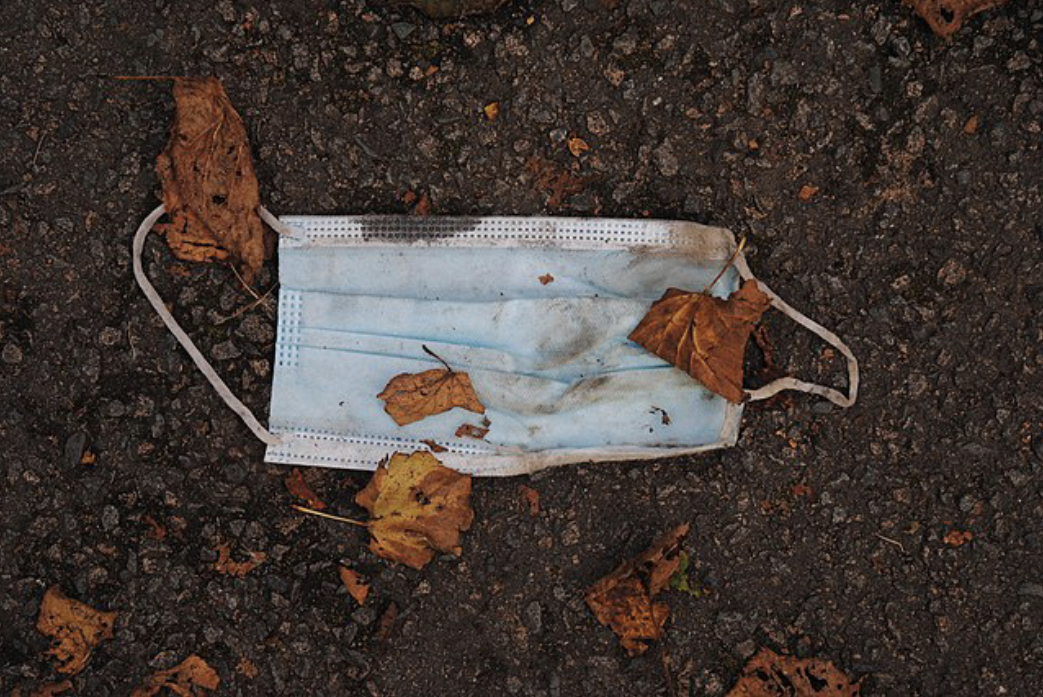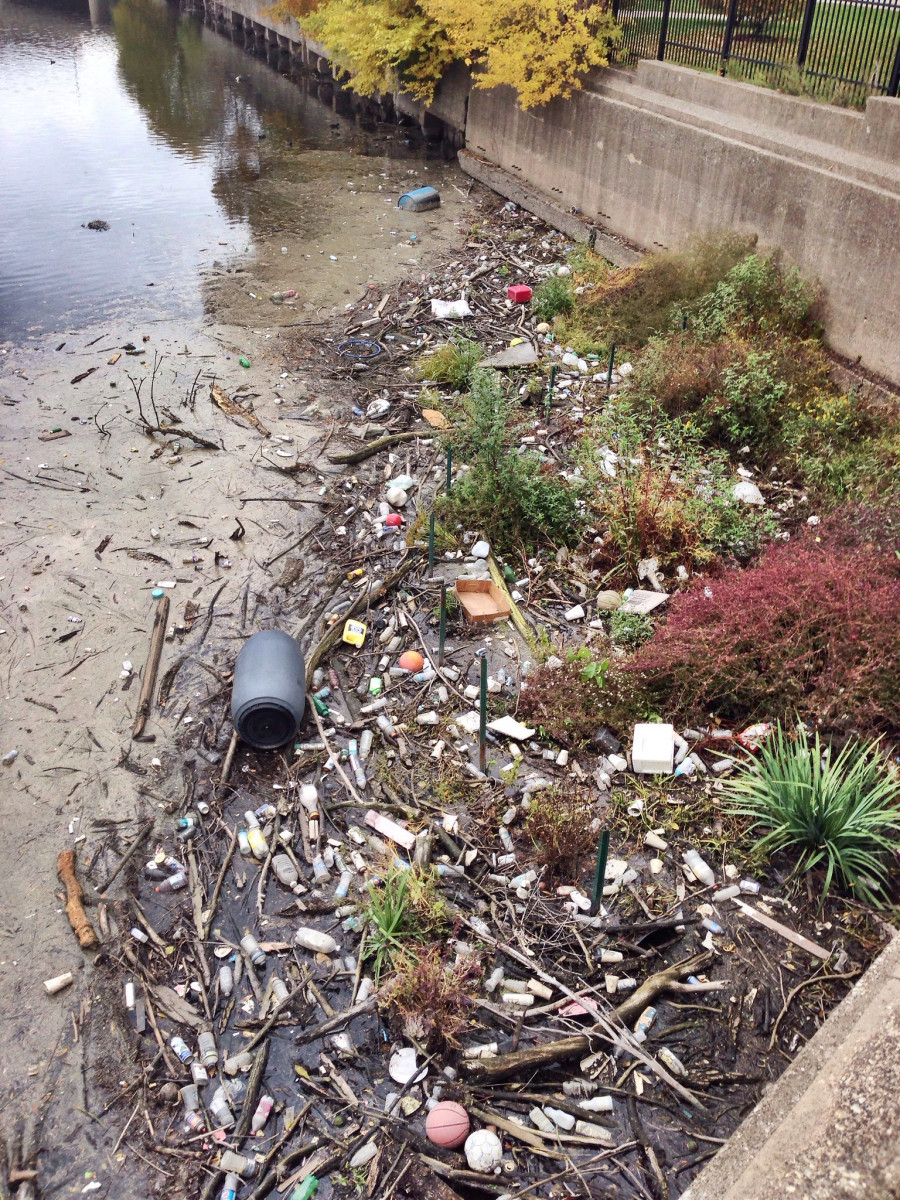
A discarded mask was one of the many types of litter resulting from the COVID-19 pandemic. (Andy Macbeth/Wikimedia Commons)

A discarded mask was one of the many types of litter resulting from the COVID-19 pandemic. (Andy Macbeth/Wikimedia Commons)
Katherine Tellock, a volunteer with Friends of the Chicago River, helps remove litter and invasive plants surrounding the Chicago River. After the cancelation of the annual My Chicago River Day event in 2020 when the COVID pandemic hit, members were given a summer challenge to clean up their own neighborhoods. This is when Tellock noticed the staggering amount of scattered trash in her West Lakeview neighborhood and started a cleaning campaign that continues today.
Tellock saw a lot of food takeout packaging, utensils and plastic bags, and she began recruiting others to help her cover more ground.
“I started cleaning my own neighborhood, then I ventured out to other areas and I eventually started to find such intense litter that I just could not do it myself,” Tellock said. “So, I posted about it online and I started to gather some people to help.”
Miranda Carrico of the Lake View East neighborhood was one of the first people to help Tellock. Both of them co-founded Cleanup Club Chicago (CUC) in July of 2020, a volunteer group tackling litter pollution through land and water group cleanups, city outreach, and waste reduction advocacy.
The environmental group has burgeoned to about 350 members from all over the city, Carrico said. As of October, they collected 1,359 kitchen-sized bags of litter since their inception. CUC often collaborates with other organizations, companies, colleges, and wards like University of Illinois Chicago, Dill Pickle Food Co-op, and Ward 25.
CUC has two group cleanups per month, running from April to November, and you can sign up here. Tellock and Carrico encourage people to always report litter issues through their alderman or 311 — the number that connects to city services like the Department of Streets and Sanitation.
Chicago generated 4.13 million tons of waste in 2020, but most recent data from 2018 reveals Chicago’s average recycling rate is just 8.81%. CUC focuses on plastic litter, encouraging members to remove plastics from the environment whenever possible as the items can have detrimental impacts on habitats and animals like turtles and birds, trapping them, Tellock said.

“Plastic pollution has some negative effects, especially on waterways and our soil,” Tellock said. “Along the river you can see very nakedly the impact that plastic pollution has on wildlife. It’s in their habitat, in their nests, they’re swimming in it.”
Chicago has litter reduction initiatives, like the Single-Use Foodware Ordinance of Jan. 18, which only restricts restaurant-caused plastic waste if patrons turn down disposable utensils. Federally, the Break Free From Plastic Pollution Act of 2021 is a proposed bill to reduce the production of certain products like packaging, paper, and containers. Lastly, on the state level, the polystyrene foam ban bill seeks to prohibit stores from distributing disposable food containers made of the synthetic polymer polystyrene. Yet, littering of this material continues with the lack of enforcement of these initiatives.
Carrico said the pandemic increased the waste of single-use plastics and other items like gloves and disposable face masks, partly because the Chicago Parks District was not hiring maintenance workers, who typically target littering in parks across the city.
Carrico said CUC gives volunteers instructions and equipment like grabbers, gloves and buckets before each cleanup.
“We’re using Eventbrite for people to sign up, which provides them instructions,” Carrico said. “We will describe to them the goals of the cleanup, where we’re going and tips.”
She added that the group holds activities like litter bingo and trash competitions to keep things engaging and fun.
Tellock said the group is gaining many volunteers in communities across the city, especially South and West sides, so far doing work in Humboldt Park, Pilsen, and Hyde Park, among others. Tellock said CUC is a group that fosters community.
“I think it is a nice way to meet people that have a common interest in taking care of the community, and to get outside and do something productive with their time,” Tellock said.